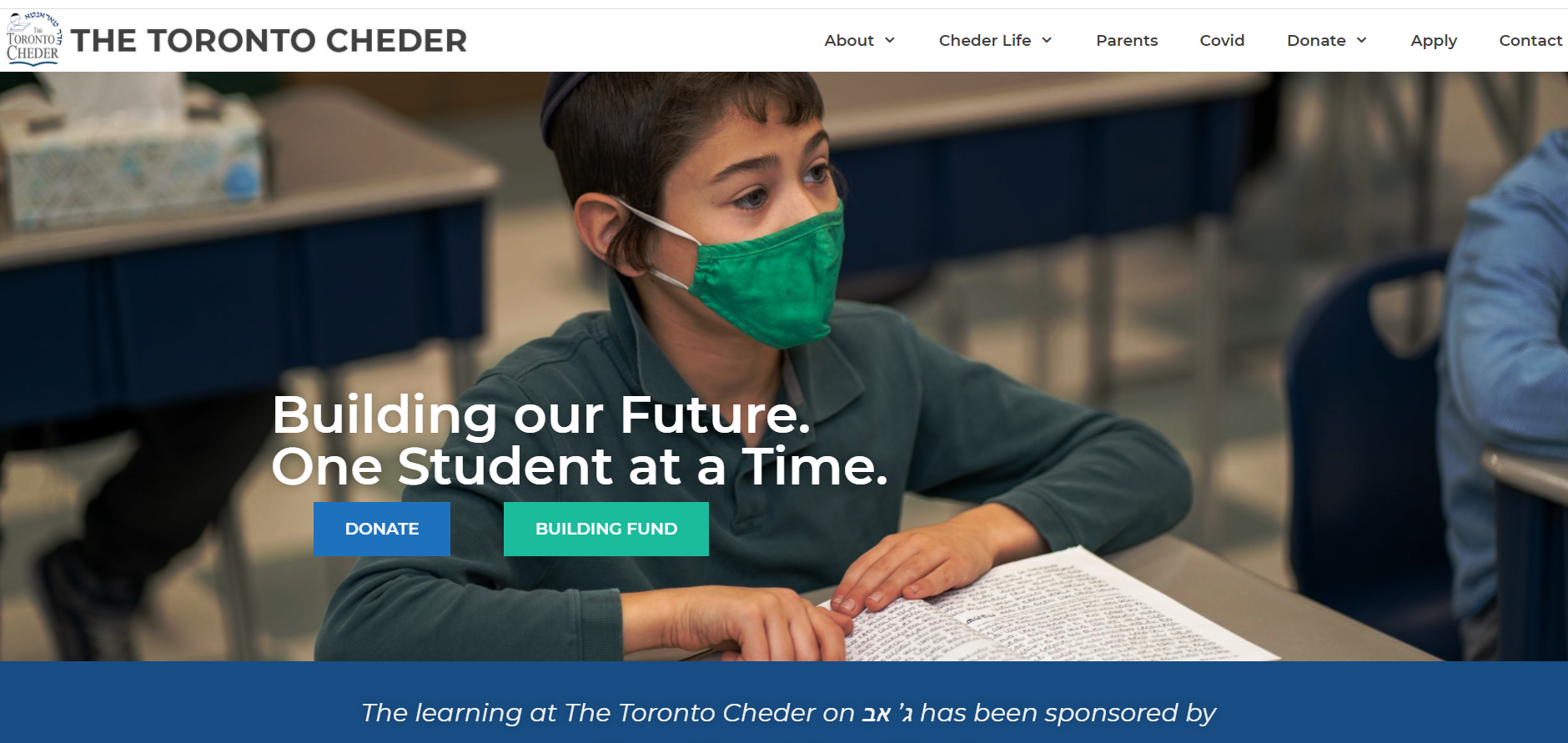The Ontario government should have at least considered including private schools when it distributed funds federal funds for COVID-related safety, a lawyer for three private schools argued in Ontario Divisional Court on Aug. 9.
Ontario received $763 million from Ottawa, as part of the Safe Return to Class Fund in 2020. The money was allocated to the province’s public and Catholic school boards for improved ventilation, sanitation and other safety measures. About 1,500 independent schools, with a total enrolment of 150,000 students, were not eligible for the funds.
In a virtual hearing before a panel of three judges, lawyer David Elmaleh, who represents three private schools, including the Toronto Cheder, a yeshiva on Patricia Avenue in North York, stated that the federal funding was intended for health and safety expenses in the “educational sector.”
“If they (the provincial government) considered and then decided not to fund private schools, that’s a different matter,” Elmaleh told court.
“There’s no rational distinction between public and private schools. We’re not talking about historical funding, we’re talking about pandemic funding.”
In court, Justice David Corbett questioned Elmaleh, saying that the architects of the Safe Return to Class fund in Ottawa were “sophisticated actors” and knew that Ontario had not previously directly funded private schools.
The federal terms of the fund, which specified what the money was intended to cover, did not direct the provinces to include private schools, he pointed out.
In an example that Corbett used several times, the federal government’s terms meant that Ontario could not have used the money to build a highway, for instance. The money had to be used only for health and safety expenses in the “educational sector.”
“Ontario could have made that choice to divide the funds between private and public schools,” Corbett said. “Just because they could have doesn’t mean they have to do it.”
Elamaleh is representing three schools, Metropolitan Preparatory Academy in Toronto, Woodland Christian High School in Kitchener, Ont., and the Toronto Cheder.
According to an affidavit from Rabbi Shmuel Horowitz, executive director of the Toronto Cheder, the school spent $44,951 on COVID-related expenses.
B’nai Brith Canada, which was the sole intervener in the case, argued that the provincial government was obligated to consider the needs of both private and public schools. Private schools are part of the educational sector, and the province did not consider whether some might have had special concerns such as being located in a hot spot, where there were more COVID cases than average.
“The grant does not impose a needs assessment expressly, but it’s implicit,” said lawyer Tommy Gelbman, who represented the advocacy group.
Lawyers representing the Ontario government refuted the argument that the province had an obligation to consider the needs of private schools.
“It might look like health funding, and certainly it’s for the benefit of children’s health and teachers’ health, but this is about access to public education. The government is not required to ensure that children have access to a private school education,” said lawyer Eunice Machado.
Private schools, even not-for-profit schools, are businesses, Machado said. The Toronto Cheder was able to access federal programs, such as wage and rent subsidies, which were not available to public schools, she said.
While some businesses failed during the pandemic, if a private school had shut down for financial reasons, those students would have had the right to attend a public school, she told court.
Conducting a needs assessment for 1,500 private schools would not have been practical, especially since there was some urgency about distributing the funds, Machado said.
The court reserved its decision. Corbett said he understood the “time-sensitive” nature of the case. “It’s a pandemic decision, it needs to be delivered in pandemic time,” although a ruling likely will not come before Labour Day, he said.
